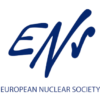Committee on the Biological Effects of lonizing RadiationEnergy dispersion through matter or space. In atomic physics...; a committee of the National Research Council of the USA which publishes a series of reports informing the US government on the effects of ionizing radiationAny radiation which directly or indirectly ionizes, e.g. alp.... The BEIR Committee published the following reports:
- BEIR III 1980: “The Effects on Populations of Exposure to Low Levels of Ionizing Radiation”;
- BEIR IV 1988: “Health Effects of RadonInert radioactive gas which is produced from the radioactive... and Other Internally Deposited Alpha-Emitters”;
- BEIR V 1990: “Health Effects of Exposure to Low Levels of Ionizing Radiation”;
- BEIR VI 1999: “The Health Effects of Exposure to Indoor Radon”,
- BEIR VII, Phase 1 1998: “Health Risks from Exposure to Low Levels of Ionizing RadiationAny radiation which directly or indirectly ionizes, e.g. alp..., Phase 1“,
- BEIR VII, Phase 2 2006: “Health Risks from Exposure to Low Levels of Ionizing RadiationAny radiation which directly or indirectly ionizes, e.g. alp..., Phase 2.
